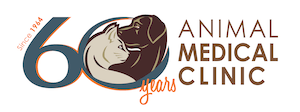A preventive care exam includes an evaluation of all of your pet’s major organ systems. We’ll use the visit to ask you questions about your pet’s behavior, appetite, exercise habits, and regular activities at home. This is also an excellent time for us to discuss any routine diagnostic testing that may benefit your pet or to recommend any vaccinations that may be due. If your pet seems healthy, a preventive care exam is a good opportunity to note any changes, such as weight gain or loss or other subtle changes that may not be evident at home. Sometimes, information obtained during an examination can help detect early signs of illness and address health issues before they progress.
A preventive care exam is also your chance to have us address your questions or concerns about your pet. We welcome your questions. No question is too small or too silly, and it is our pleasure to address your concerns. We strive to help you understand your pet’s health considerations, and we encourage you to be involved in decisions regarding your pet’s health care.
Finally, preventive care exams help us establish a relationship with you and your pet. Through your pet’s physical examinations, other preventive care procedures, and our consultations with you, we get to know your pet and learn about his or her lifestyle, personality, health risks, home environment, and other important information. We encourage you to use preventive care examinations to take an active role in your pet’s health care.
COMPREHENSIVE PHYSICAL EXAMS – 16 BODY SYSTEMS AT A GLANCE
- Attitude / Appearance: alertness
- Oral Cavity / Teeth: assess for signs of dental disease, tumors, or fractured teeth
- Mucous Membranes: checking for color and perfusion
- Eyes: assess for vision abnormalities, cataracts, or injury using an ophthalmoscope
- Ears: examine ear canals and assess for sign of infection using an otoscope
- Cardiovascular: for heart murmurs, heart rate and rhythm
- Respiratory: assess lung sounds for signs of asthma, congestion or other airway disease
- Abdomen / Gastrointestinal: assess internal organs and examine for any signs of discomfort
- Musculoskeletal: assess for signs of arthritis, injury or defects
- Lymph Nodes: assess for enlargement or discomfort
- Urogenital: assess for signs of infection, discomfort, or anatomical abnormalities
- Integumentary: assess for parasites and other diseases of the skin and coat
- Nervous system: assess for neurologic related disease or trauma
- Body Score: signs of abnormal weight
- Dental Score: rating of dental disease.
- Pain Score: assess if any pain is present
Your pet can benefit greatly from regular preventive care exams. Whether your pet is young or a senior citizen, or any age in between, preventive care exams provide an excellent opportunity for us to conduct a thorough physical examination and develop a health profile for your pet. This information will help us identify medical problems and any other issues that can affect your pet’s health and quality of life. If your pet is due for a checkup, give us a call!



